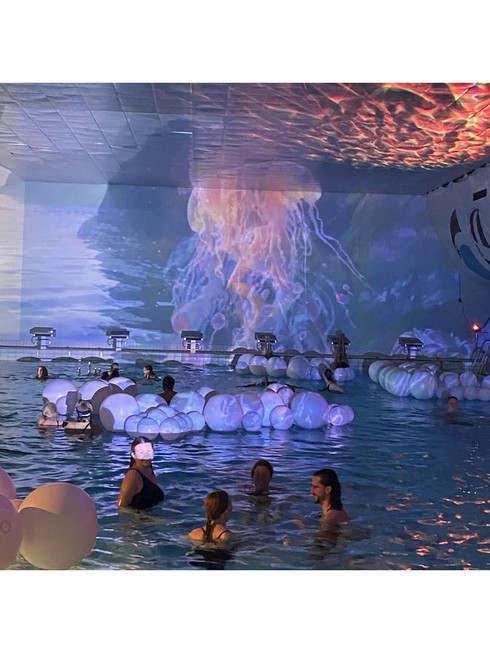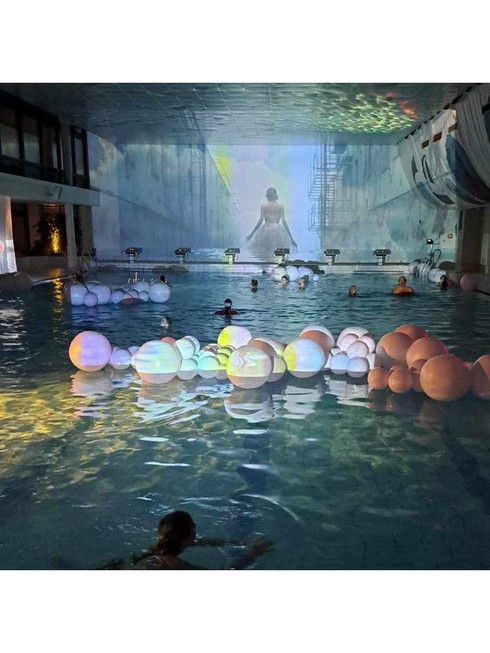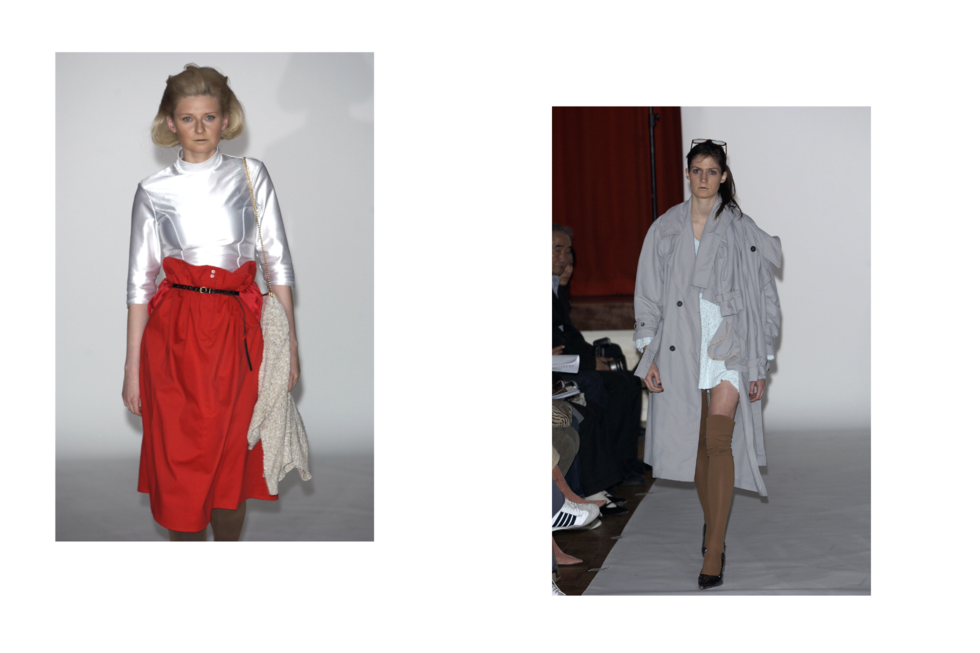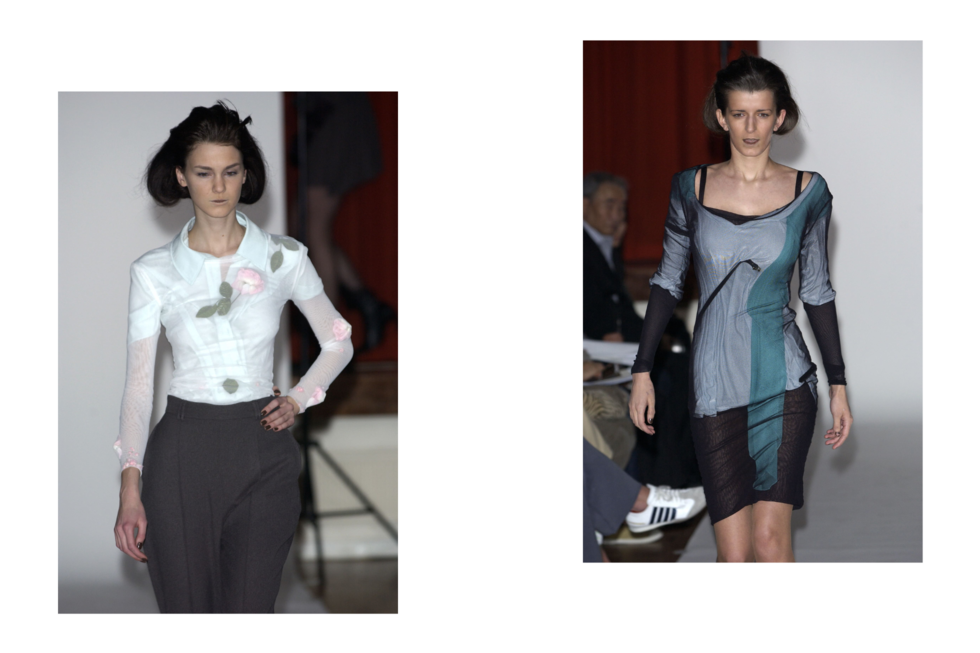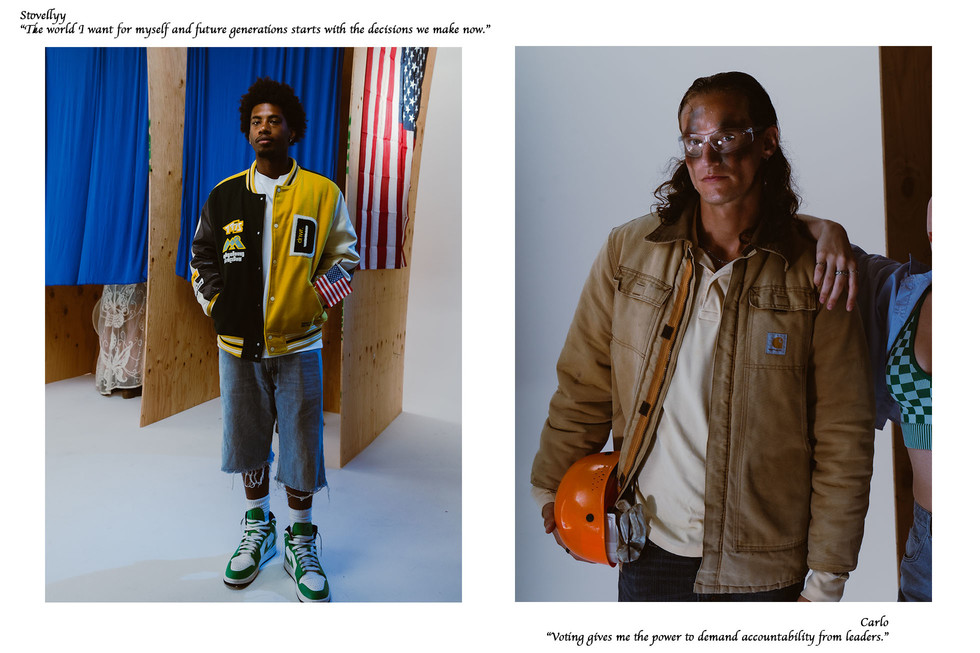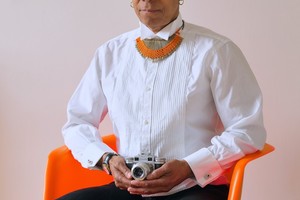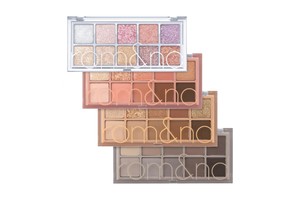Jeanette Wester's Audiovisual Transformation of Centralbadet
Written by Ludmila Christeseva by OliwiaJeanette Wester's Audiovisual Transformation of Centralbadet
In honor of Stockholm Centralbadet’s 120th anniversary, artist Jeanette Wester has reimagined the spa experience, transforming it with an immersive audiovisual installation that invites visitors to become part of the artwork itself. Trained in set design and architecture, Wester’s work melds digital projections with the organic shapes of Centralbadet, creating a space that feels alive and ever-evolving.
A Living Artwork
Wester’s installation, displayed in the Salongsbadet, allows visitors to interact with the art, immersing themselves in a world of projected light, shadow, and water. White spheres drift through the pool, casting reflections that respond to the architecture and each visitor’s movements. This interaction shifts the experience from passive observation to active participation. “In this environment, people aren’t just watching—they are part of the work,” Wester explains. “They become whole with the art.”
Merging Wellness and Art
Wester’s vision extends beyond the visual to connect art with wellness, enhancing the atmosphere of Centralbadet’s iconic interior dedicated to health and relaxation. “I believe in blending art with wellness,” Wester shares. “By combining these elements, we offer people a fuller experience of the space.” The pool, with its rounded, flowing forms, becomes a canvas that embraces both health and artistic exploration, inviting spa-goers into a scene that is both calming and deeply evocative.
A Personal Connection and Profound Themes
Inspired by her own wellness practices, Wester views art in spas and swimming pools as a way to create shared moments of beauty and connection. Her work brings out emotions that can be both healing and introspective. “The water has a way of drawing out memories and meaning,” she says. “For some, it’s about coping with loss; for others, it’s about reflecting on environmental change. There’s a beauty to the installation, but also something deeper within.”
As Centralbadet celebrates this milestone, visitors leave with not only a refreshed body but also a sense of connection, joy, and introspection. Wester’s installation creates a serene yet thought-provoking atmosphere, blending tradition with modern artistic expression—an ideal tribute to 120 years of health, wellness, and community.
As the holiday season approaches, the artist shared her future plans, highlighting upcoming projects designed to engage with unique architectural spaces and seamlessly blend contemporary art. Wester’s art map includes a range of spa, wellness, and social destinations, such as the exclusive Soho House in Los Angeles, set for spring 2025, and the World Expo in Osaka. At each location, she aims to explore innovative ways to harmonize art within the challenges and nuances of each environment, creating immersive, context-sensitive experiences.


